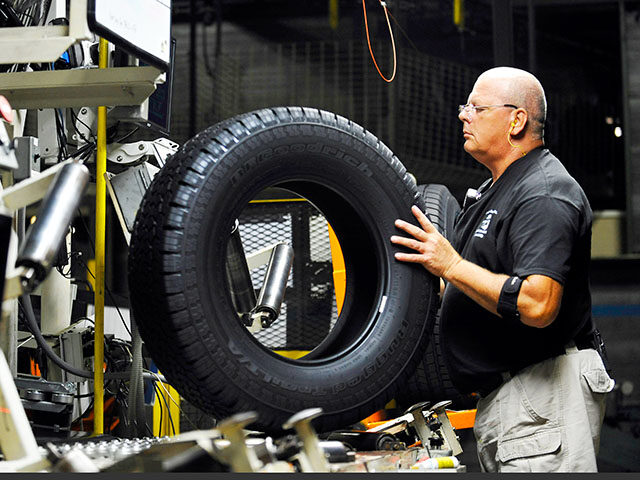A tire factory in Tonawanda, New York, was shut down on November 7, a move that left more than 1,5oo people jobless.
The Japanese-owned company Sumitomo Rubber USA closed its Dunlop plant and moved manufacturing overseas, the New York Post reported Wednesday.
“The plant closure is primarily due to overall facility performance within the increasingly competitive international tire market,” Sumitomo explained in a statement. “This difficult decision follows a multi-year analysis of the company’s financial situation and general market conditions.”
WKBW reported that 1,550 employees were affected by the decision. Video footage shows security officers wearing tactical gear outside the facility and blocking the entrance:
“This decision was not made lightly, and we understand the significant impact it has on each of you, your families, and our entire community,” Sumitomo said in an email to workers.
The company tried to find a buyer for the facility but was unable to do so, per the Post.
“Dunlop tires are made for passenger cars, trucks, buses and motorcycles. The brand also has sporting goods such as tennis rackets and golf equipment,” the outlet said.
A reporter for WKBW spoke with workers who said the news was “horrible” and it was a “very tough blow for the livelihoods of many families”:
In June, American kitchen product company Tupperware said it was closing down its final factory in the United States and moving production to Mexico, Breitbart News reported at the time.
The company was set to lay off about 150 factory workers in Hemingway, South Carolina, until the plant shuts down for good on January 14.
A company representative said, “It’s important to note this decision is not a reflection of the performance of the Hemingway [team]. We appreciate each of our valued team members and the many years of service they have dedicated to our salesforce and to the company.”
Tupperware planned to take advantage of lower wages by moving production to Mexico.

COMMENTS
Please let us know if you're having issues with commenting.